“Jewish people also have a historical connection to this land and are not going anywhere“
AHMED FOUAD ALKHATIB
Thirty-one. That’s how many of my extended family members have died in Gaza since October 7. Thirty-one including my sweet and sociable 12-year-old niece, Farah; uncle Riyad, who had comedic inclinations; aunt Zainab, who loved feeding everyone; cousin Heba, who was incredibly kind despite being the sassiest person I ever met; uncle Abdullah, a retired medical doctor who helped save hundreds of lives during the Second Intifada in Rafah; and cousin Yahya, with whom I watched endless Japanese anime cartoons as a child while growing up in Gaza.

I feared this outcome the moment I heard the news of Hamas’s attack on Israel that day. I was horrified by all aspects of the October 7 massacre, including the glorification of the attack, particularly by activists and many in the pro-Palestine camp who failed to register the calamity of what had just unfolded and what was about to occur.
I was equally horrified by the unrelenting dehumanisation of all Gazans and Palestinians and the portrayal of them as bloodthirsty terrorists who simply want to kill Jews.
My worst fears were realised on October 13 and 25 and December 14, when three separate airstrikes in Gaza City and Rafah killed so many of my family members and destroyed both of my childhood homes.
When missile after missile flattened the communities and buildings that I had grown up with, the Yarmouk neighbourhood in Gaza and the Brazil district in Rafah, claiming the lives of those inside and around, children as young as three and four months old and their grandparents in their seventies.
Watching all this unfold from the safety of my home in San Francisco, California, has been immensely painful. The past seven months have entailed endless sleepless nights, close calls, false alarms and frantic attempts to help locate missing family members. There is never time to properly grieve or absorb the magnitude of what has been lost.
As this horrendous tragedy unfolded, the unjust killing of thousands of civilians who had nothing to do with Hamas or militancy, I had a decision to make. I could do what most people do when faced with such catastrophic events and give in to the hate. Or I could attempt to break out of the trap of mutual hatred that for almost a century has kept Palestinians and Israelis in a cycle of incitement, violence and revenge.
I was determined to honour the memory of my lost family and loved ones by pursuing a different path towards reconciliation, co-existence and peace, hoping to inspire others on both sides to do the same. It has not been an easy journey.
I grew up in Gaza City, born to Palestinian parents born in the Strip’s southern city of Rafah — their own parents had fled their homes in 1948. I experienced the tail end of the imperfect yet viable Oslo peace process in the 1990s and Hamas’s gradual rise to power and dominance of the coastal territory’s society and politics. It was a time of immense hope for a final settlement of the conflict.
Yet Hamas was not only a violent spoiler, it proselytised viciously against the very concept of peace, something I remember in summer camps, schools, Friday prayer sermons, online media, demonstrations and various venues and outlets that brainwashed large segments of Palestinian society.
Many believe Gaza was this unbelievably awful place before October 7, an unrelenting prison with nothing in it worth living for. They then conclude that Hamas’s horrendous attack was a legitimate reaction to Israeli policies that made Gaza a concentration camp. But this perspective misses an important truth. It fails to recognise that even with Israel’s multifaceted blockade, which has been in place since 2007, Gaza was a beautiful place that meant so much to its residents and people.
Before October 7, Gaza was deeply troubled, with horrendous unemployment, polluted water, overcrowding, repeated wars, limited political prospects and widespread religious fanaticism. Yet Gaza’s parks, beaches, agricultural lands, restaurants, cultural and artistic sites, professional training centres, sprawling homes and neighbourhoods, high literacy rates, educational and medical facilities, local economy and vast human capital made the Strip a precious home for Gazans and a place worth preserving, maintaining and protecting. This was the home I grew up in.
Many are unable to understand that, on October 7, Hamas needlessly and criminally threw all of this away as part of nefarious calculations by violent and homicidal leaders who have utter disregard and contempt for the average Palestinian citizen. Hamas’s armed resistance and the accompanying propaganda have not only failed the Palestinian people for the past three decades but also strengthened radical and anti-Palestinian voices within Israel. It appals me that so many in Palestinian politics are still unable to condemn and criticise Hamas as a despicable force for ill and a disastrous gift to the Israeli right and its prime minister, Binyamin Netanyahu.
Since the 1990s, Hamas has succeeded in brainwashing many to believe that peace is treacherous cowardice that will never succeed because Israel is inherently unwilling to live with the Palestinians. The resistance narrative conveniently ignores how the Arab wars of Gamal Nasser’s pan-Arabism, the guerrilla operations of the secular and left-wing Palestinian Liberation Organisation or Islamist terrorism have cumulatively failed in obtaining a Palestinian state and, worse, resulted in more Palestinian deaths and loss of land. October 7 was a culmination of this narrative. Its result has been a catastrophe for the people of Gaza.
What I yearn for and feel desperate to see emerging is a revitalised Palestinian narrative that looks at the past 75 years of failures and acknowledges the need for a radical shift towards the pragmatic pursuit of peace.
Yes, the Palestinian people have suffered immensely due to the Zionist project and the fact that Jewish self-determination took place in a territory that both peoples believe is their ancestral homeland. At the same time, however, there must be an acknowledgement that the Jewish people also have a historical connection to this land and are not going anywhere, and that Israel can exist alongside an independent and prosperous Palestinian nation.
Importantly, the renaissance in the Palestinian cause will require the recognition that the Palestinian people are victims of the delusional rhetoric and promises of their horrible leaders and terrible allies, who created the continuing illusion that all of Palestine can be liberated and that there can be a full right of return to historic Palestine for all of those displaced in the wars of 1948.
Of course, the Palestinian people have suffered great injustices at the hands of Israel, from the continuing military occupation and settlement of the West Bank to some of the reckless targeting and bombardment that has claimed so many lives in Gaza this past seven months. But there needs to be a recognition that Israel, like any other country, has legitimate security needs. Recognising this can be the foundation for obtaining many new rights for Palestinians.
Making these points in public has not been easy. I have received many thousands of threats, harassing comments and angry messages. Since October 7, the entrenchment of both the pro-Palestine and pro-Israel narratives have made it nearly impossible to operate somewhere in between and to hold multiple truths at once, without denying the other side’s humanity and legitimate grievances.
The mere suggestion of compromise is enough to launch many supposed pro-Palestine activists and advocates into a frenzied state, casting pragmatism as cowardly treachery and “selling out to the Zionists”. I certainly do not think it antisemitic to criticise Israel and its government, but incendiary slogans and hateful — often antisemitic — rhetoric have regrettably become a common feature of protests, university activism, online discourse and media appearances, diminishing the prospects for a meaningful path forward.
Nevertheless, I am encouraged by the Palestinians and Israelis who have contacted me. Crucially for me, as a Palestinian, I have succeeded in building bridges with many Israelis and Jews, including those who are strongly supportive of the state of Israel. I was moved and heartened after meeting Israeli survivors of October 7 and people who lost loved ones, including families of hostages and even a former hostage, Judith Raanan, who was released from Gaza early in the war.
Despite Judith’s immense suffering and the death of her loved ones in Kibbutz Nahal Oz, from where she and her 18-year-old daughter Natalie were kidnapped, her capacity for compassion and kindness towards me was truly inspiring and motivated me further to acknowledge the indisputable and undeniable humanity of both of our people. Amid all the devastation and all the loss, this is the feeling I will hold onto like a life raft, allowing me to continue hoping that a better future might be possible.
Ahmed Fouad Alkhatib is a Middle East analyst and non-resident senior fellow at the Atlantic Council

We also recommend reading:
Luai Ahmed – Letter from an Arab to Muslims, Son Of Hamas: They Don’t Exist Without A Reason, Arab Public Opinion on the Israeli War on the Gaza Strip, Frequently Asked Questions

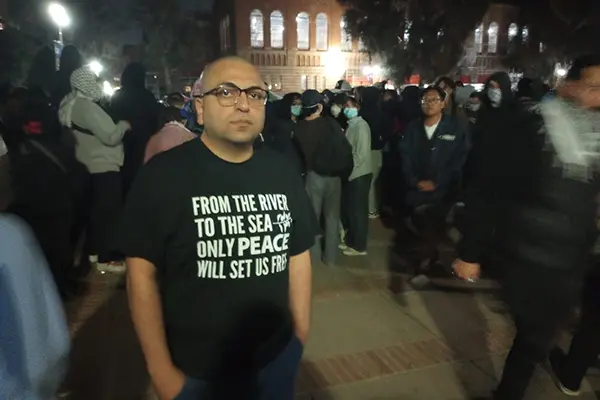



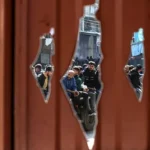
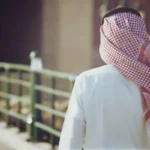
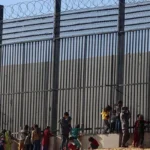
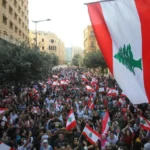
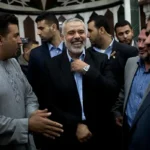
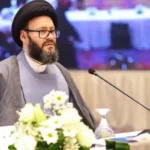
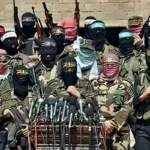
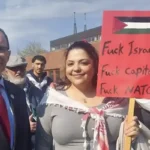
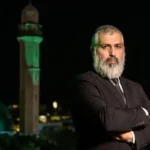
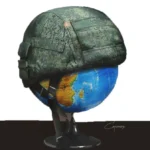
Leave a Reply